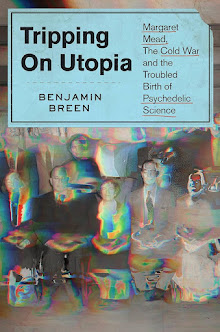 I lay it down as a foundation, that whosoever, sailing over the South Seas... shall never fail to discover new worlds, new nations, and new inexhaustible funds of wealth and commerce, such as never were yet known to the merchants of Europe.
I lay it down as a foundation, that whosoever, sailing over the South Seas... shall never fail to discover new worlds, new nations, and new inexhaustible funds of wealth and commerce, such as never were yet known to the merchants of Europe.- Daniel Defoe, A New Voyage Round the World, by a Course Never Sailed Before (London, 1724)
 |
| South Sea Bubble by Edward Matthew Ward (1846). |
 Famously, however, things did not work out as planned. A roughly ten-fold decrease in the price of South Sea stock between 1720 and 1721 ruined countless families and sent shockwaves through the popular culture of Western Europe. No less a personage than Isaac Newton was reported to have lost the huge sum of roughly £20,000 (millions in the US dollar of today). Perhaps apocryphally, the astronomer remarked that he could "calculate the movement of the stars, but not the madness of men."
Famously, however, things did not work out as planned. A roughly ten-fold decrease in the price of South Sea stock between 1720 and 1721 ruined countless families and sent shockwaves through the popular culture of Western Europe. No less a personage than Isaac Newton was reported to have lost the huge sum of roughly £20,000 (millions in the US dollar of today). Perhaps apocryphally, the astronomer remarked that he could "calculate the movement of the stars, but not the madness of men."As I said above, historians and economists have shed a lot of ink on this subject. But the popular culture of the South Sea Bubble strikes me as less well covered. For instance, I was interested to discover that playing cards seem to have been a popular means of commemorating the financial failure. Perhaps the juxtaposition of economic catastrophe with the small-scale world of gambling was a form of sly social commentary? Below are some images of 'Bubble Cards' and other printed ephemera from the 1720-21 period.
Here's a complete set of South Sea playing cards via BibliOdyssey.
And a broadside that cleverly gathers together (we would say plagiarizes) some of the most popular images of the collapse. Note the Bubble Card posted above in the bottom left corner, for instance:
The sheer number of Bubble Cards held by libraries to this day attests to their popularity. I suppose it is a testament to the entrepeneurial character of the age that even a disastrous financial collapse could be used to sell merchandise. And it seems fitting that this merchandise consisted of ink on paper, since so many of the schemes associated with the South Sea Bubble (and, indeed, European trading companies in general) amounted to little else
The Scottish author Charles Mackay discussed the Bubble in his famous work Extraordinary Popular Delusions and The Madness of Crowds










1 comment:
Print Playing Cards by a best playing card manufacturer...
Post a Comment